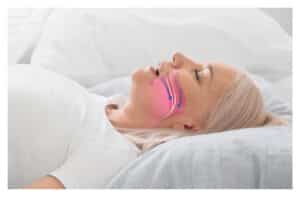The Secret Soundtrack of Sleep: What Your Snoring Says About You

At eos dental sleep in Philadelphia, PA, Dr. Marc Levin has helped countless patients trade their noisy nights for truly restful sleep. A graduate of the University of Pennsylvania School of Dental Medicine, Dr. Levin has received advanced training in oral appliance therapy and is a member of the American Academy of Dental Sleep Medicine. He creates custom-fitted, FDA-approved dental appliances designed to stop snoring at the source.
Soft Purrs, Rumbles, and Chainsaws: Types of Snoring and What They Mean
Snoring isn’t one-size-fits-all. Different sounds can point to different root causes. If you’re curious about your snoring, listen closely. The sound may offer real medical clues:
- Light purring or humming: Often caused by minor vibrations in the soft palate. Although it may not be harmful, it could still disturb sleep.
- Low rumbling: Suggests partial blockage of the airway, possibly linked to allergies or mild congestion.
- Wet, gurgling noises: Could signal excess mucus or fluid. Might indicate chronic sinus issues or alcohol use before bed.
- Choking or gasping: A red flag for obstructive sleep apnea, where airflow is briefly cut off entirely.
- Loud, harsh "chainsaw" sounds: Usually mean a significant airway obstruction. This is potentially serious and worth immediate evaluation.
Different snoring styles may seem humorous, but they can reveal sleep-disrupting problems that hurt your health.
Why Snoring Isn’t Just a Nuisance
Snoring may seem like just a nightly inconvenience, but it can lead to more significant issues if left unaddressed. Poor sleep quality doesn’t just leave you tired. It affects almost every part of your health and can cause:
- Daytime fatigue: Snoring reduces deep sleep cycles, leaving you groggy.
- Relationship tension: Bed partners suffer too, often losing sleep as a result.
- Heart health risks: Snoring has been linked to an increased risk of high blood pressure and heart disease.
- Cognitive impact: Disrupted sleep harms memory, concentration, and mood.
- Long-term dangers: Chronic snoring can be a precursor to obstructive sleep apnea.
Ignoring snoring can have serious consequences, especially if it indicates an underlying condition such as sleep apnea.
Reclaim Quiet Nights in Philadelphia
Snoring might be your body’s way of asking for help. With the right treatment, you can finally enjoy quiet, refreshing sleep again. Call (215) 241-0700 to learn how oral appliance therapy can improve your sleep and protect your health.
